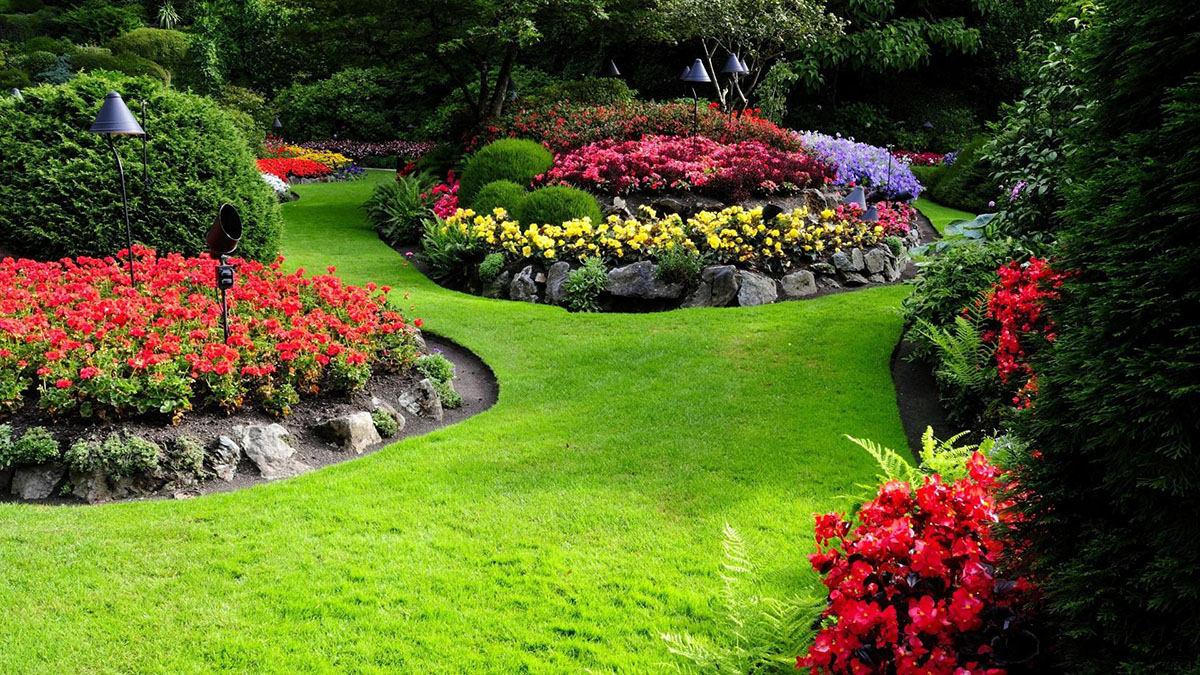In a fast-paced world filled with stressors and distractions, the need for moments of tranquility and mental rejuvenation has never been more important. Enter the healing power of gardens. Beyond their aesthetic appeal, gardens and green spaces have a profound impact on mental health. In this blog post, we’ll explore the psychological benefits of green spaces and how thoughtful landscaping can enhance overall well-being.
- Stress Reduction: Nature’s Antidote
Green spaces offer a natural antidote to stress. Spending time in gardens can:
Lower Cortisol Levels: The scent of plants and the sound of rustling leaves can reduce the stress hormone cortisol, leading to relaxation.
Promote Mindfulness: Gardens encourage mindfulness, helping individuals focus on the present moment and alleviate anxiety.
- Mood Enhancement: A Natural Uplift
The presence of nature has a direct influence on mood. Gardens can:
Boost Serotonin: Exposure to natural light and greenery triggers the release of serotonin, a neurotransmitter associated with feelings of well-being.
Decrease Symptoms of Depression: Regular garden visits can alleviate symptoms of depression and improve overall mental health.
- Cognitive Benefits: A Sharper Mind
Gardens can stimulate cognitive function:
Enhanced Concentration: Time spent in green spaces can improve focus and concentration, which is especially beneficial for individuals with attention disorders.
Memory Improvement: Nature settings can enhance memory retention and cognitive skills.
- Stress Relief: The Therapeutic Effect
Engaging in gardening activities, whether planting, weeding, or simply tending to plants, can:
Lower Anxiety: Gardening is an excellent stress-reliever, as it requires focus and physical activity.
Create a Sense of Achievement: Watching plants grow and thrive provides a sense of accomplishment and purpose.
- Social Connection: Building Communities
Well-designed gardens can act as community hubs:
Social Interaction: They create opportunities for people to come together, fostering social connections that are vital for mental health.
Sense of Belonging: Community gardens, in particular, promote a sense of belonging and shared responsibility.
- Aesthetics and Design: Thoughtful Landscaping
Thoughtful landscaping plays a crucial role in reaping these benefits:
Natural Elements: Incorporate native plants, water features, and natural materials to create a harmonious and inviting space.
Restorative Design: Consider the layout, seating areas, and sensory elements like fragrant plants or wind chimes to enhance the therapeutic atmosphere.
The healing power of gardens and green spaces is an undeniable force for good in our increasingly busy lives. As we’ve explored, the benefits of spending time in well-designed gardens extend to stress reduction, mood enhancement, cognitive benefits, stress relief, social connection, and much more. Thoughtful landscaping is the key to unlocking these mental health benefits. So, whether you’re designing your own garden or seeking solace in a public green space, remember that the healing power of gardens is there to nurture your well-being, offering respite and rejuvenation in a world that often demands too much.







